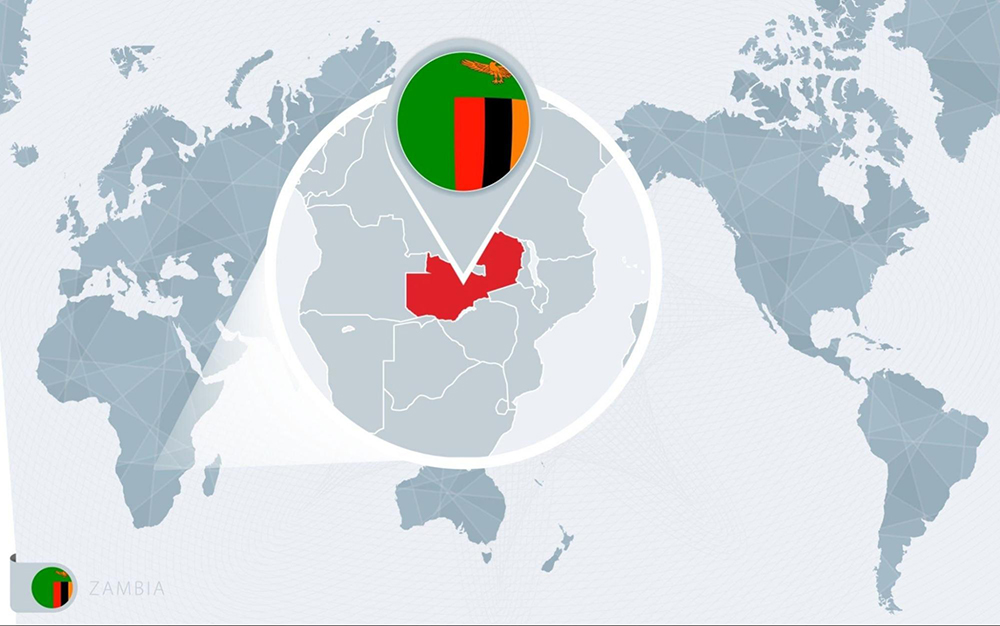Project Summary
FOR SALE – Zambia Hydro I-RECS Project, which is currently operating since May 2022, Vintages 2022-2023 SPOT, April 2023-2032 FORWARD offtake available.
From May 2022 onwards until March 2023 – there are 12,700,000/MWh (12,700,000 REC Certificates) available to purchase on SPOT.
The current production across all 11 devices is approximately 900,000/MWh (900,000 REC Certificates) per month. This figure will fluctuate slightly due to environmental and operational conditions such as weather fluctuations (rainfall) and annual maintenance schedules of devices. From April 2023 onwards, FORWARD offtake available until 2032, since this is a 10 year project initially from 2022-2032.
AGRO – DEVELOPMENT PROJECT – ZAMBIA
The proceeds from the trade(s) of the generated I-REC’s in Zambia have been reserved and protected as these funds will be spent to undertake the Rural Development Project across all Provinces in Zambia.
ZAMBIA’S ECONOMIC DIVERSIFICATION AND AGRICULTURAL PRODUCTIVITY
Zambia is currently facing an economic recession, but there is an opportunity to create grassroots Rural Empowerment Centers that can boost productivity and diversify the economy. These developments can help to reduce the need for importing basic products and preserve foreign currency. The lack of infrastructure, education, and access to funding for SMEs has hindered the growth of the nation. Developing rural areas with smart farming techniques can help diversify the economy and make Zambia a food basket for the region. The Rural Empowerment Centers project can implement the strategies of the current administration to provide food security and promote rural growth and decentralization.
FREE EDUCATION, VOCATIONAL TRAINING, AND MSME DEVELOPMENT
Providing free education and vocational training/apprenticeship programs can help to develop MSMEs, alleviate poverty, and create more employment opportunities. Education is crucial to enable the local population to access these opportunities and grow MSMEs into larger corporations that can provide even more employment opportunities for Zambians. This strategy will help to eradicate poverty and allow Zambia to prosper by utilizing its natural resources, such as its vast land areas, water resources, and favorable weather conditions.
THE RURAL EMPOWERMENT CENTER
Agro-Power Development Corporation has developed a model to increase agricultural productivity, provide free education, and develop MSMEs in rural areas to alleviate poverty in Zambia. Their funding model will support the development of up to 200 villages across Zambia over a 5-year period, promoting rural entrepreneurship. Each Rural Empowerment Center will have solar power plants, solar-powered boreholes, aquaculture ponds, cold rooms, vegetable beds, small farming beds, line shops, and classrooms for free education. This model aims to provide basic human needs such as power and water, encourage sustainability and profitability, maximize productivity, promote commerce and employment, and create opportunities for skilled youths, all without financial cost to the Zambian government.
- In late 2021, Zambia adopted the I-REC program, which received final approvals from the I-REC Foundation in April 2022. By August 2022, a total of 11 devices had been approved and registered on the Evident Trading platform.
- In Zambia, the state-owned utility company, ZESCO, serves as the power producer responsible for generating power for all registered devices. Furthermore, ZESCO is responsible for submitting generation data to the local issuer on a monthly basis.
- Ecostar Energy Solutions serves as the approved local issuer for I-REC in Zambia. As an independent party, the local issuer is responsible for verifying the generation data submitted by the power producer, as well as uploading this information onto the trading platform.
- Energroup LLC has been approved as the I-REC market participant for Zambia. As the responsible party for marketing available certificates, the market participant is tasked with tracking the progress of the certificates through the trading platform until their eventual retirement.
The development project is geared towards bolstering rural community empowerment through the establishment of Rural Economic Empowerment Centers. These centers will support the key objectives of the project, including enhancing food security and production, providing free education and vocational training opportunities, facilitating the growth of cooperatives into MSMEs, and establishing a hub-and-spoke pack-house system to streamline the collection and delivery of agricultural produce to local and international markets.
There Are Several Pillars To The Development Project
- Access to water and electricity through solar PV solutions
- Solar PV will be scalable from providing power to the above facilities, to the reticulation to the local population (Phase 2).
- Construction of boreholes to support agriculture practices, local consumption and to support hygiene practices (i.e. ablution blocks at schools).
-
Promotion and scaling of agricultural practices (aquaculture and horticulture)
- A percentage of products will provide food security for local consumption.
- To promote trade through cooperatives (women’s groups) for consolidation at a district level using pack houses for local and international supply.
- Support the revenue at the local district Council Level.
-
Promotion of local trade – Construction of local shops.
- Allowing local suppliers access via outlets to support communities. (farming input, suppliers, pharmacies, etc).
- Primary and Secondary schools to increase access to education.
- Vocational training and resource center to promote valuable skill sets to enable the retention of the local population in rural communities.
Establishing A Market For RECs In Zambia
Regional RECs are an innovative market-based instrument that, adopted on a regional scale, helps to achieve goals and monitor compliance.
The Zambia clean energy strategy aims to provide 36% of Zambia’s energy from clean energy sources by 2025.
RECs help attain the five main pillars of the UN clean energy strategy by greening the grid: infrastructure, legislation, funding, building capacities and skills, and having an environment-friendly energy mix.
RECs as incentives to developing renewable projects: Purchasers of RECs provide renewable energy project owners with additional revenues. Overall, this improves renewable energy project economics, increasing their competitiveness with fossil fuels, coal, and natural gas.
ECOSTAR’s I-RECS Role
In each country, an official issuer must be authorized to issue Renewable Energy Certificates in that region. Without issuer authorization for a specific country or region, it is not possible to issue RECS for production devices in that country or region.
The International REC Standard (I- REC) is an international standard for issuing, tracking, and redeeming renewable energy certificates. The I-REC is established and governed by The International REC Standard based in the Netherlands.
Each REC certificate has its own serial number so that it can be accounted for from creation to retirement.
Additional information about that REC is tracked, including:
- Energy source,
- Project location,
- Vintage (i.e., when the certificate was created).
After the Letter of Authorization is executed, granting Ecostar Energy Solutions Limited permission to receive and install meters for the issuance of Renewable Energy Certificates, the Zambian Government will be able to convert these RECS into cash funds which will then be used to build the Rural Empowerment Commercial Centers. This will enable the government to achieve its economic goals of promoting agriculture, providing free education and vocational training, establishing MSMEs, and decentralizing the economy.
We are pleased to inform you that Climate Carbon has forged a strategic partnership with Energroup LLC to promote and market the Renewable Energy Certificates (RECs) generated from the Hydro project. These RECs will directly contribute towards funding the sustainable energy projects listed on our webpage.
Let us work together towards building a sustainable world for generations to come.
To buy now please email us at


